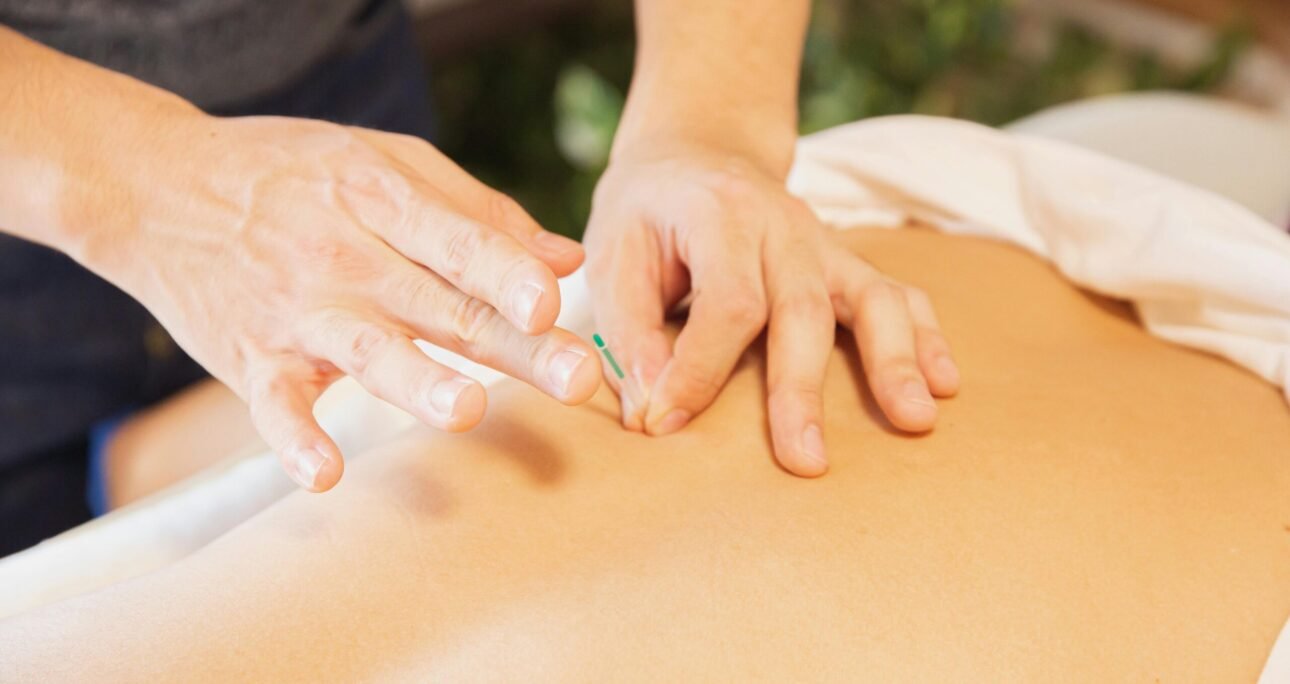[et_pb_section fb_built=”1″ admin_label=”section” _builder_version=”4.16″ custom_padding=”3px|||||” global_colors_info=”{}”][et_pb_row admin_label=”row” _builder_version=”4.16″ background_size=”initial” background_position=”top_left” background_repeat=”repeat” custom_padding=”0px|||||” global_colors_info=”{}”][et_pb_column type=”4_4″ _builder_version=”4.16″ custom_padding=”|||” global_colors_info=”{}” custom_padding__hover=”|||”][et_pb_text admin_label=”Text” _builder_version=”4.22.1″ background_size=”initial” background_position=”top_left” background_repeat=”repeat” global_colors_info=”{}”]
Acupuncture, an ancient practice rooted in Traditional Chinese Medicine (TCM), has gained significant attention in contemporary health discussions, especially regarding its potential benefits for fertility. This holistic therapy involves inserting fine, sterile needles into specific points on the body to stimulate energy flow and restore balance. Within the realm of reproductive health, many individuals are curious about how acupuncture might assist with fertility issues.
What is Acupuncture?
Acupuncture is a therapeutic method that has been practiced for thousands of years, primarily in Asia. Its fundamental principle is based on the belief that energy, or “Qi” (pronounced “chee”), circulates through the body along pathways known as meridians. Imbalances or blockages in this energy flow can lead to various health issues, including reproductive difficulties.
During an acupuncture session, a licensed practitioner will insert thin needles into designated acupuncture points. These points are strategically located to influence specific bodily functions and promote healing. Many patients report feelings of relaxation and well-being during and after treatment, suggesting that acupuncture may have both physical and psychological benefits.
Can Acupuncture Help with Fertility?
Numerous studies have explored acupuncture’s effect on fertility, focusing on both male and female reproductive health. Evidence suggests that acupuncture can be an effective complementary therapy for individuals experiencing challenges in conceiving.
For women, acupuncture may help regulate menstrual cycles, balance hormone levels, and improve overall reproductive health. For men, acupuncture may enhance sperm production and quality. While it is not a guaranteed solution for all fertility issues, many individuals have reported positive outcomes when incorporating acupuncture into their fertility treatment plans.
Where are the Needles Used for Fertility Issues?
When targeting fertility issues, acupuncture practitioners choose specific points based on the individual’s unique reproductive health concerns. Key acupuncture points may include those located on the lower abdomen, lower back, legs, and arms.
Some commonly targeted points for women include:
- Zhongji (Ren 3): Located on the lower abdomen, this point is believed to enhance reproductive health and regulate menstrual cycles.
- Sanyinjiao (SP 6): Found just above the inner ankle, this point is often used to nourish the uterus and support overall reproductive function.
- Guanyuan (Ren 4): This point is also in the lower abdomen and may help to invigorate blood flow to the reproductive organs.
For men, acupuncture points may be selected to improve hormone balance and boost sperm health. Points may be chosen based on the individual’s overall health and specific symptoms.
What is the Relationship Between Acupuncture and Female Reproductive Hormones?
Research indicates that acupuncture can influence female reproductive hormones, improving conditions related to fertility. The practice may regulate levels of oestrogen and progesterone, two crucial hormones involved in ovulation and the menstrual cycle.
The regulation of these hormones can lead to improved ovarian function, making ovulation more regular and potentially increasing the chances of conception. Furthermore, by promoting hormonal balance, acupuncture may alleviate conditions such as polycystic ovary syndrome (PCOS) and other menstrual irregularities, further aiding fertility efforts.
Does Acupuncture Help with Blood Flow?
One of the primary ways acupuncture may enhance fertility is through improved blood circulation. Enhanced blood flow to the reproductive organs can help nourish the ovaries and uterus, creating a more favourable environment for conception.
By using specific acupuncture points, practitioners can stimulate the circulatory system, promoting better blood flow and oxygen delivery to the reproductive system. This increased circulation can support healthier ovarian function and improve the uterine lining, which is essential for implantation.
Does Acupuncture Help with Egg Quality?
Improving egg quality is a critical aspect of enhancing fertility, and acupuncture may play a role in this area. Some studies have shown that regular acupuncture treatments can lead to healthier eggs, potentially increasing the chances of pregnancy during assisted reproductive techniques such as in vitro fertilization (IVF).
While more research is needed, the theory is that increased blood flow and hormonal balance can positively influence ovarian function, resulting in better-quality eggs. Healthier eggs are more likely to be successfully fertilized and lead to a viable pregnancy.
Can Acupuncture Improve Sperm Quality?
Acupuncture’s benefits extend beyond female fertility; it can also support male reproductive health. Research has indicated that acupuncture may improve sperm quality by enhancing sperm count, motility, and morphology.
By promoting better blood flow to the reproductive organs, acupuncture may help reduce oxidative stress in sperm, providing a more conducive environment for sperm health. Many men who have undergone acupuncture for fertility concerns have reported improvements in their sperm parameters, making it a valuable addition to fertility treatment plans.
Can Acupuncture Help with Embryo Implantation?
One of the critical stages in achieving pregnancy is successful embryo implantation, and acupuncture may contribute positively in this aspect. Acupuncture can help create an optimal uterine environment and improve endometrial receptivity, which is vital for implantation.
Research suggests that acupuncture may increase the chances of successful embryo implantation during IVF procedures by improving blood flow to the uterus and reducing stress levels. These factors can make the uterus more receptive to an embryo, potentially enhancing the likelihood of pregnancy.
Can Acupuncture Help to Reduce Stress?
Stress can significantly impact fertility, and managing stress levels is crucial for those trying to conceive. Acupuncture has been shown to be effective in reducing stress and promoting relaxation.
By stimulating specific acupuncture points, the therapy can help balance the body’s stress response, leading to lower cortisol levels and a sense of calm. This reduction in stress can benefit overall reproductive health, as high-stress levels are often linked to hormonal imbalances, which may impair fertility.
I’m Interested in Having Acupuncture for My Fertility Issues. When is the Best Time to Have It and How Long Should I Have It For?
If you’re considering acupuncture as part of your fertility journey, timing and frequency of treatments are essential factors to consider. The best approach often depends on individual circumstances, desired outcomes, and a practitioner’s recommendations.
Generally, many practitioners suggest starting acupuncture treatment at least three months before attempting to conceive. This timeframe allows the body to experience the potential benefits fully and can help optimize conditions for conception.
During an IVF cycle, women may benefit from having acupuncture treatments before and after embryo transfer, as studies indicate this could enhance implantation rates.
Typically, acupuncture sessions may be scheduled weekly or bi-weekly, especially when addressing fertility concerns. It’s essential to communicate openly with your practitioner about your goals and any specific fertility treatments you are undergoing.
In conclusion, acupuncture presents a complementary approach to enhancing fertility. By balancing hormones, improving blood flow, and reducing stress, acupuncture can support both women and men on their journey to parenthood. If you’re considering this holistic therapy, consulting with a licensed acupuncturist experienced in fertility issues will help tailor a treatment plan best suited to your individual needs.
IFC is pleased to work with a number of professionals who offer acuncture to help address fertility issues; for more information contact, info@theifc.world
IVF clinics, best IVF clinic, IVF in England, best IVF center, ivf center, what is icsi, IVF, egg donation, sperm donation, artificial insemination, IVF treatment, IVF procedure, IVF clinics, fertility clinic, fertility, infertility treatment, assisted reproductive technology, egg retrieval, embryo transfer, IVF success rates, fertility specialist, IVF cost, male infertility, female infertility, IVF process, preimplantation genetic testing, frozen embryo transfer, IVF alternatives, borrowed eggs, embryologists, group fertility, gynecological care, diagnostic testing, egg donation, ivf egg donation, medicinal stimulation, assisted reproduction, genetic diagnosis, preimplantation genetic diagnosis, ovarian stimulation
IVF clinics, best IVF clinic, IVF in England, best IVF center, ivf center, what is icsi, IVF, egg donation, sperm donation, artificial insemination, IVF treatment, IVF procedure, IVF clinics, fertility clinic, fertility, infertility treatment, assisted reproductive technology, egg retrieval, embryo transfer, IVF success rates, fertility specialist, IVF cost, male infertility, female infertility, IVF process, preimplantation genetic testing, frozen embryo transfer, IVF alternatives, borrowed eggs, embryologists, group fertility, gynecological care, diagnostic testing, egg donation, ivf egg donation, medicinal stimulation, assisted reproduction, genetic diagnosis, preimplantation genetic diagnosis, ovarian stimulation
IVF clinics, best IVF clinic, surrogacy in Argentina, IVF in England, best IVF center, ivf center, what is icsi, IVF, egg donation, sperm donation, artificial insemination, IVF treatment, IVF procedure, IVF clinics, fertility clinic, fertility, infertility treatment, assisted reproductive technology, egg retrieval, embryo transfer, IVF success rates, fertility specialist, IVF cost, male infertility, female infertility, IVF process, preimplantation genetic testing, frozen embryo transfer, IVF alternatives, borrowed eggs, embryologists, group fertility, gynecological care, diagnostic testing, egg donation, ivf egg donation, medicinal stimulation, assisted reproduction, genetic diagnosis, preimplantation genetic diagnosis, ovarian stimulation
IVF clinics, best IVF clinic, IVF in England, best IVF center, ivf center, what is icsi, IVF, egg donation, sperm donation, artificial insemination, IVF treatment, IVF procedure, IVF clinics, fertility clinic, fertility, infertility treatment, assisted reproductive technology, egg retrieval,
embryo transfer, IVF success rates, fertility specialist, IVF cost, male
infertility, female infertility, IVF process, preimplantation genetic testing, frozen embryo transfer, IVF alternatives, borrowed eggs, embryologists, group fertility, gynecological care, diagnostic testing, egg donation, ivf egg donation, medicinal stimulation, assisted reproduction, genetic diagnosis, preimplantation genetic diagnosis, ovarian stimulation
[/et_pb_text][/et_pb_column][/et_pb_row][/et_pb_section]






